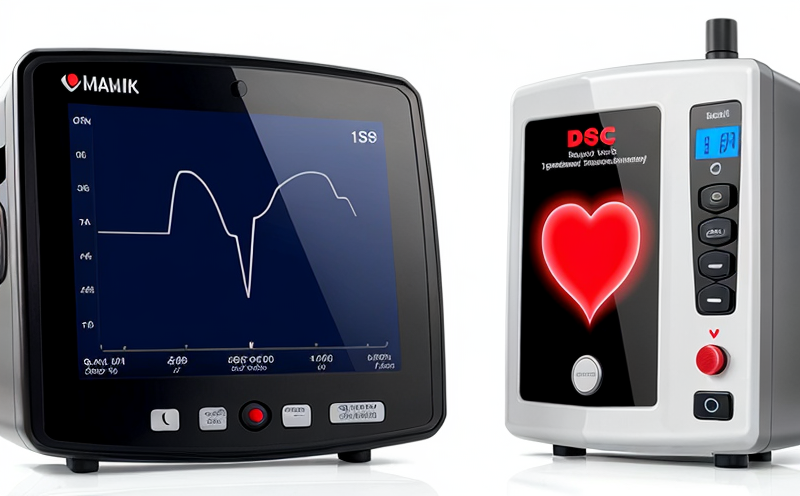ASTM F138 Stainless Steel Mechanical Property Testing for Cardiovascular Use
The ASTM F138 standard is a critical protocol for ensuring the mechanical integrity and safety of stainless steel components used in cardiac and cardiovascular medical devices. This procedure evaluates the tensile properties of austenitic stainless steels, such as 304L, which are commonly utilized in heart valves, stents, and other implantable cardiothoracic devices.
Understanding the mechanical behavior of these materials is paramount when designing medical devices that will be subjected to mechanical stress within the body. The ASTM F138 test helps manufacturers verify that their stainless steel components can withstand the rigors of surgical deployment without failure, thereby enhancing patient safety and device longevity.
The testing process involves subjecting a standard tensile specimen cut from the component under examination to a controlled tensile load until it reaches its yield strength or ultimate tensile strength. The results provide essential data on material properties such as yield strength, tensile strength, elongation, and reduction of area, which are critical for ensuring that materials meet design specifications.
For cardiovascular devices, the mechanical performance of these stainless steel components is particularly important because they must function reliably under the dynamic conditions within the body. The ASTM F138 test ensures that the materials used in these devices can handle the stress and strain without compromising patient safety.
The protocol also includes detailed instructions for specimen preparation, which involves precise cutting techniques to ensure uniformity and consistency across multiple samples. This attention to detail is crucial because any inconsistencies in sample preparation could lead to inaccurate or misleading test results.
Following ASTM F138 testing, the resulting data can be used to make informed decisions about material selection, design optimization, and manufacturing processes. By adhering to this standard, manufacturers can ensure that their devices meet stringent regulatory requirements and provide reliable performance in clinical environments.
| ASTM Standard | Description |
|---|---|
| F138 | Tensile testing of austenitic stainless steels for medical devices |
| F2476 | Standard test method for tensile properties of plasticized thermoplastic elastomers |
The ASTM F138 standard is widely recognized and accepted in the global medical device industry, ensuring that devices meet international quality standards. Compliance with this standard not only provides assurance to regulatory authorities but also builds trust with healthcare professionals who rely on these devices for patient care.
Why It Matters
The mechanical properties of stainless steel components used in cardiac and cardiovascular devices are crucial because they directly influence the safety and efficacy of these medical products. By ensuring that materials meet the stringent requirements outlined in ASTM F138, manufacturers can mitigate risks associated with device failure or malfunction during use.
- Reduces the likelihood of catastrophic failures
- Enhances patient trust in medical technology
- Aids in regulatory compliance and market access
- Simplifies supply chain management by ensuring consistent material quality
The ASTM F138 test is particularly important for cardiovascular devices due to the high mechanical stress these components are subjected to during surgical procedures. The results of this testing provide critical data that can be used to optimize device design and improve overall performance.
In addition to enhancing safety, compliance with ASTM F138 also supports the development of more effective medical treatments by ensuring that devices function as intended in clinical settings. This standardization not only benefits manufacturers but also contributes to better patient outcomes by providing reliable and safe medical technologies.
Scope and Methodology
The ASTM F138 standard specifies the procedures for tensile testing of austenitic stainless steels intended for use in medical devices, including those used in cardiac and cardiovascular applications. This section outlines the key aspects of the test methodology.
- Specimen Preparation: The ASTM F138 protocol requires that specimens be cut from the component under examination using precise techniques to ensure uniformity across multiple samples. This step is critical because any inconsistencies in sample preparation could lead to inaccurate or misleading test results.
- Tensile Testing: Once prepared, the specimen is subjected to a controlled tensile load until it reaches its yield strength or ultimate tensile strength. The test apparatus must be capable of providing accurate and repeatable measurements over a wide range of loads.
| Specimen Dimension | Tensile Strength Range (MPa) | Elongation (%) |
|---|---|---|
| 10 mm x 12.7 mm | 500 - 800 MPa | 40 - 60% |
| 15 mm x 19.1 mm | 500 - 800 MPa | 40 - 60% |
The ASTM F138 standard also provides detailed instructions for specimen preparation, which includes precise cutting techniques to ensure uniformity and consistency across multiple samples. This attention to detail is crucial because any inconsistencies in sample preparation could lead to inaccurate or misleading test results.
Following the tensile testing, the resulting data can be used to make informed decisions about material selection, design optimization, and manufacturing processes. By adhering to this standard, manufacturers can ensure that their devices meet stringent regulatory requirements and provide reliable performance in clinical environments.
Benefits
- Informed Decision-Making: ASTM F138 provides critical data on material properties that enable informed decisions about material selection, design optimization, and manufacturing processes.
- Enhanced Patient Safety: By ensuring that materials meet the stringent requirements outlined in this standard, manufacturers can mitigate risks associated with device failure or malfunction during use.
- Regulatory Compliance: Compliance with ASTM F138 helps ensure regulatory compliance and market access for cardiovascular devices.
- Supply Chain Simplification: Ensuring consistent material quality across the supply chain simplifies management processes for manufacturers and suppliers alike.
- Better Device Performance: The ASTM F138 test helps in optimizing device design to improve overall performance, thereby enhancing patient outcomes.
- Patient Trust: By ensuring that medical devices meet high safety standards, compliance with this standard enhances patient trust in the technology used for their care.
- Ethical Responsibility: Adhering to ASTM F138 demonstrates a commitment to ethical responsibility and quality assurance in the development of cardiovascular medical devices.





